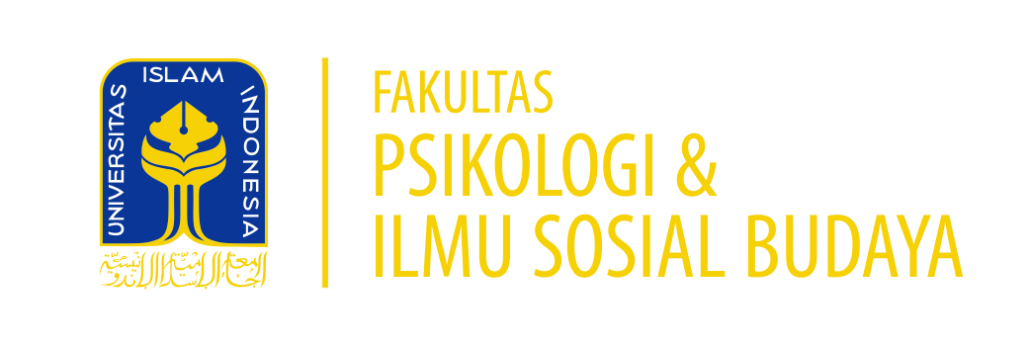Understanding Politics in Our Daily Lives: An Islamic Perspective
By : Hasbi Aswar (Lecturer of International Relations)—
For some people, politics belongs to the elite or educated people, which is not suitable for the public who are thinking merely about fulfilling their lives. This assumption is not accurate. Politics is not something far from our lives instead it is an integral part. Simply put, politics is the art of exercising power or government or a strategy to regulate society through policies made.
From the Islamic point of view, politics cannot be understood as limited to government affairs but is the art of regulating life individually, family, society, and state. This concept is based on the prophet’s explanation through his hadith narrated by imam Bukhari & Muslims. From ‘Abdullah bin ‘Umar Radhiyallahu ‘anhu:
كُلُّكُمْ رَاعٍ فَمَسْئُولٌ عَنْ رَعِيَّتِهِ، فَالأَمِيرُ الَّذِي عَلَى النَّاسِ رَاعٍ وَهُوَ مَسْئُولٌ عَنْهُمْ، وَالرَّجُلُ رَاعٍ عَلَى أَهْلِ بَيْتِهِ وَهُوَ مَسْئُولٌ عَنْهُمْ، وَالمَرْأَةُ رَاعِيَةٌ عَلَى بَيْتِ بَعْلِهَا وَوَلَدِهِ وَهِيَ مَسْئُولَةٌ عَنْهُمْ، وَالعَبْدُ رَاعٍ عَلَى مَالِ سَيِّدِهِ وَهُوَ مَسْئُولٌ عَنْهُ، أَلاَ فَكُلُّكُمْ رَاعٍ وَكُلُّكُمْ مَسْئُولٌ عَنْ رَعِيَّتِهِ
“Each of you is a leader and will be held accountable for what he leads. Amir (head of state) is a human leader in general, and he will be held accountable for them. A husband is a leader in his family, and he will be held accountable for them. A wife is a leader in her husband’s household and his children, and he will be held accountable for them. A servant is a leader in his master’s property affairs, and he will be held accountable for it. Know that each of you is a leader, and every one of you will be held accountable for who he leads.” (Bukhari and Muslim).
Suppose politics is understood as the art of exercising power. Power could not only belong to the state, but for everyone. He decides how his life will be run. What frame of mind and attitude pattern he must live to face his life. Every choice has consequences for being held accountable before Allah SWT. The prophet explained this in his other words:
اَ تَزُولُ قَدَمَا عَبْدٍ يَوْمَ الْقِيَامَةِ حَتَّى يُسْأَلَ عَنْ عُمْرِهِ فِيمَا أَفْنَاهُ وَعَنْ عِلْمِهِ فِيمَا فَعَلَ وَعَنْ مَالِهِ مِنْ أَيْنَ اكْتَسَبَهُ وَفِيمَا أَنْفَقَهُ وَعَنْ جِسْمِهِ فِيمَا أَبْلاَهُ.
“It will not shift the two soles of a servant’s feet on the Day of Resurrection until he is asked about his age where he spends, about his knowledge of how he practices them, about his wealth; Where he gets it and where it spends it, and about what it uses for.” (HR. Tirmidhi).
On a family level, the husband has the power over his family to lead them into the good and prevent falling into evil. Likewise, a wife has a responsibility for domestic affairs. God has warned husbands through his word:
“O you who believe, keep yourself (and your son) and your wives from the fire of hell whose fuel is man and stone, the guardians of the angels who are rude, hard, and do not disobey Allah to what He commanded them and always do what He is commanded.” (QS, At-Tahrim: 6).
In the state level, Islam teaches that a leader is a ruler in society. His power is used to regulate society with various policies carried out. The leader must love his people, be fair, always be open to advice and consult on all affairs. It has been taught by the prophet Muhammad (peace be upon him) since becoming a leader in Medina, followed by the four rightly guided caliphates (khulafa’ ar-rashidun) and the Muslim leaders afterward.
Furthermore, the motivation of leading in Islam is not to achieve worldly interests as much as possible as politics in today’s life. Islam educates its people to exercise leadership based on righteousness by carrying out orders and staying away from the prohibition of Allah SWT and his messenger. This is the key so that the pleasure and blessings of Allah SWT can come down from heaven and grow from the earth as stated in the Qur’an surah Al-A’raf , verse 96, Allah SWT said:“If the inhabitants of the land had believed and feared, we would have bestowed upon them blessings from heaven and earth, but they denied them, we would have punished them for their deeds (QS, Al-A`raf, 96).”
Exercising Power in Islam
Politics is often interpreted as a place to seek power; as Hans J. Morgenthau (2017) has put the interests of the ruler in politics must prioritize power, not morality. Even for him the meaning of morality must be linked to maximize interests and minimize losses (Morgenthau, 2017). Niccolò Machiavelli conveyed the same idea in his book The Prince (1532) that morality should not be a political benchmark but a powerful motive. If power interests are juxtaposed with morality, then the power must come first. Political concepts like this are following the proverb, “end justify the means” (Stanford Encyclopedia of Philosophy, 2019).
If this principle is implemented, anything can be done to achieve political goals. For example, a country can commit lies, betrayal, occupation, and even destruction to get what they want, such as Israel colonizing Palestine, the United States fighting Iraq and Afghanistan, and so on. If applied at the domestic political level, this kind of thinking will produce corrupt politicians, like peddling political promises to gain power. On a family level, such thinking will make the head of the household a mere ruler who is free to treat his wife and children arbitrarily.
Islam rejects morality or norms above power. This is reflected in God’s dialogue with angels when the first man will be created. Allah told the angels that Allah would create a caliph on earth. Angels questioned the policy in a worried tone that God would create creatures that would corrupt and shed blood. But Allah answered that He knew better than the angels (Al-Baqarah, 30).
In this dialogue, the Angel represents the view that man is a flawed character and destructive. But God taught that God did not create such a human being. Allah has equipped man with common sense, knowledge, and two paths, namely the way of taqwa and wickedness (fujuur). For humans to walk the right path, it is required to follow the teachings of Allah SWT that have been revealed to the prophet Muhammad (peace be upon him).
In the Islamic view, a man was created on this earth as a caliph or representative of Allah SWT to govern the world as well as possible. On the other hand, the mission of the caliphate is carried out on the earth in the framework of worship to Allah SWT as stated in Surah Az-Zariyat verse 56:
“And I did not create the jinn and mankind but that they might serve Me”(QS Az-Zariyat, 56).
It can be concluded that the desired power in Islam is to carry out the mandate of the caliphate and realize the obligation of worship from Allah SWT.
The implementation of Islamic Political Power
When the concept of power in Islam is applied in political life both the sphere of individuals, families, and states, the picture will be:
In the individual aspect, there will be a person who obeys Allah SWT indicated by all the good behavior of words and deeds that always lead to good and avoid evil as much as possible. The knowledge he has will be practiced and taught to others. And he will perform his whole life with kindness.
In the family sphere, when the principle of Islamic leadership is applied then the husband will direct his family based on the spirit of worship and good deeds. He also will guide his family in a loving, nurturing, and well-educated manner.
If applied at the state level will give birth to a leader who only fear Allah SWT so that power is correctly exercised for enjoining what is right and forbidding what is wrong (amar makruf nahi munkar). This leader is undaunted even if the people he confronts are rich, have positions, even for his own family. Because this leader is aware that power is a trust (amanah) from God, not for worldly interests. A leader like this would be very sensitive to the wrong thing; even if he makes a mistake, he is willing to take responsibility and even resign from his position.
Conclusion
The politics taught in Islam is not a mere theory but has been applied more than ten centuries ago since the prophet Muhammad (peace be upon him) was sent. Of course, the most important example is the prophet Muhammad (peace be upon him). He is the best example in leadership: individual, family, and state as he was sent as a uswah hasanah or example for all humankind l until the end of time. Models of leadership were also widely demonstrated by leaders after the prophet. We know them as khulafa’ ar-rashidun, Abu Bakr As-Shiddiq,Umar ibn Khattab, Usman bin Affan, and Ali ibn Abi Talib. They are not only the great the leader but also superior in the individual aspect as a pious, an excellent war leader, and exemplary household head.
In conclusion, Islam teaches that leadership does not always speak of the state alone but also includes individuals and families or covers all levels of life in society. On the other hand, the key success to make politics run ideally, is to put Islam as its principle, and the goal is to create society based on righteousness (taqwa).
Referensi:
Morgenthau, H. J. (2017). Six Principles of Political Realism. In R. J. A. & R. Jervis (Ed.), International Politics: Enduring Concepts and Contemporary Issues (13th ed., pp. 19–27). New York: Pearson.
Stanford Encyclopedia of Philosophy. (2019). Niccolò Machiavelli (Stanford Encyclopedia of Philosophy). Retrieved January 20, 2022, from https://plato.stanford.edu/entries/machiavelli/#MoraReliPoli
Al-Quran Al-Kariim
Al-Hadith An-Nabawi






